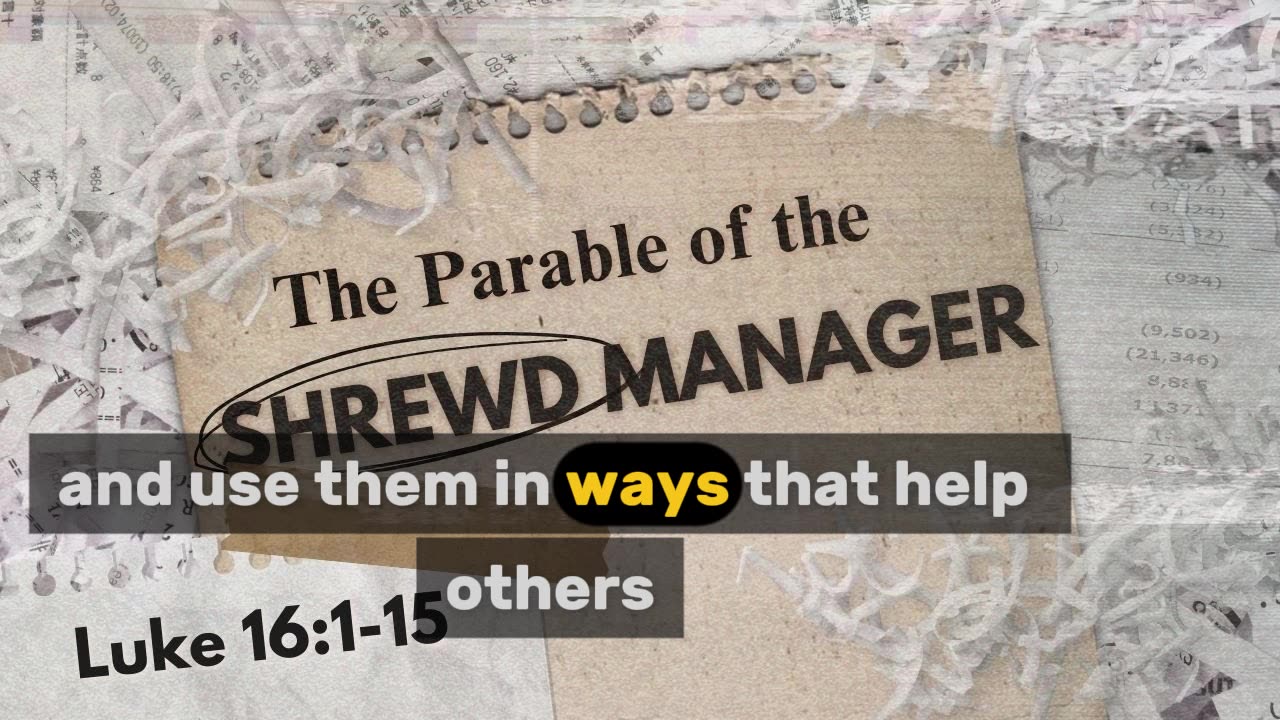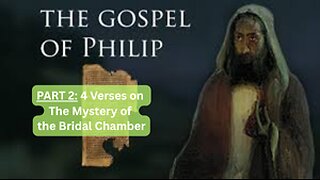Premium Only Content

Sunday Gospel & Reflection: Parable of the Shrewd Manager
Sunday Gospel & Reflection (September 21, 2025)
Parable of the Shrewd Manager
Gospel Luke 16:1-13
Jesus said to his disciples,
"A rich man had a steward
who was reported to him for squandering his property.
He summoned him and said,
'What is this I hear about you?
Prepare a full account of your stewardship,
because you can no longer be my steward.'
The steward said to himself, 'What shall I do,
now that my master is taking the position of steward away from me?
I am not strong enough to dig and I am ashamed to beg.
I know what I shall do so that,
when I am removed from the stewardship,
they may welcome me into their homes.'
He called in his master's debtors one by one.
To the first he said,
'How much do you owe my master?'
He replied, 'One hundred measures of olive oil.'
He said to him, 'Here is your promissory note.
Sit down and quickly write one for fifty.'
Then to another the steward said, 'And you, how much do you owe?'
He replied, 'One hundred kors of wheat.'
The steward said to him, 'Here is your promissory note;
write one for eighty.'
And the master commended that dishonest steward for acting prudently.
"For the children of this world
are more prudent in dealing with their own generation
than are the children of light.
I tell you, make friends for yourselves with dishonest wealth,
so that when it fails, you will be welcomed into eternal dwellings.
The person who is trustworthy in very small matters
is also trustworthy in great ones;
and the person who is dishonest in very small matters
is also dishonest in great ones.
If, therefore, you are not trustworthy with dishonest wealth,
who will trust you with true wealth?
If you are not trustworthy with what belongs to another,
who will give you what is yours?
No servant can serve two masters.
He will either hate one and love the other,
or be devoted to one and despise the other.
You cannot serve both God and mammon."
Gospel Reflection:
A wealthy man discovers his manager has been misusing his possessions and is about to fire him. To secure his future, the manager shrewdly calls in the master’s debtors and reduces what they owe. For instance, he cuts a debt of 900 gallons of olive oil to 450. When the master learns of this, he commends the dishonest manager for his cleverness. Jesus uses this story to teach that people should be as proactive in their spiritual lives as the worldly are in their material affairs.
He uses this story to teach us some important lessons:
1. Be Wise with What You Have for Eternal Rewards
Jesus isn’t telling us to be dishonest. He’s encouraging us to be wise with what we’ve been given—like money, time, and talents—and use them in ways that help others and make a difference for eternity.
The manager used money to make friends who would help him later. In the same way, Jesus tells us to use our resources to help others and build relationships that matter in the long run—especially in God’s kingdom. When we use our money to bless others, we’re making an eternal investment.
2. Be Trustworthy with Small Things
Jesus also teaches that how we handle small things shows what kind of person we really are. He says, “If you can be trusted with little, you can be trusted with much.”
That means if we are honest and responsible with small amounts of money or opportunities, God will trust us with more. But if we’re careless or dishonest, even in small things, we’re showing we can’t be trusted with bigger, more important things—like spiritual blessings.
3. You Can’t Serve Both God and Money
Jesus ends with a strong and clear message: “You can’t serve two masters.”
You can’t fully follow God while also chasing after money like it’s the most important thing. Sooner or later, you’ll have to choose what matters most.
Money can easily take over our hearts and become like a false god. Jesus is telling us to put God first, above everything else—even money. The way we use our money shows who or what we really serve.
-
 5:10
5:10
Doubting Tomasz 2.0
13 days agoGospel of Philip: 4 Verses - The Mystery of the Bridal Chamber
15 -
 22:02
22:02
We Got Receipts
5 hours agoIt just got WORSE for Democrats…
242 -
 4:15
4:15
Captain Peach
9 days ago5 Ways Games Trick You Into Buying
71 -
 1:00:30
1:00:30
Based Campwith Simone and Malcolm
4 days agoYou Think You Hate The Media ... You Don't Hate Them Enough
1091 -
 LIVE
LIVE
The Amber May Show
4 hours agoAmerica’s Spiritual Shake-Up: From Pews to Paganism?
89 watching -
 1:16:27
1:16:27
Redacted News
2 hours agoYou Won't BELIEVE what is happening in America right now... It's SHOCKING
100K90 -
 1:38:07
1:38:07
vivafrei
3 hours agoLive with Ivan Raiklin! Jan. 6 Pipe Bomber~! Comey & Letitia James Charges Dropped! AND MORE!
67.5K40 -
 1:22:52
1:22:52
Russell Brand
4 hours agoThey’re Running Out of Road — The Scandals, Experiments & Numbers They Can’t Hide - SF654
92.6K5 -
 1:25:59
1:25:59
The Quartering
4 hours agoCandace Owens Assassination Plot, Fat Acceptance Is Over, James Comey Indictment Thrown Out
113K45 -
 1:27:27
1:27:27
The HotSeat With Todd Spears
3 hours agoEP 214: Do YOU Believe In Miracles???
19.3K9